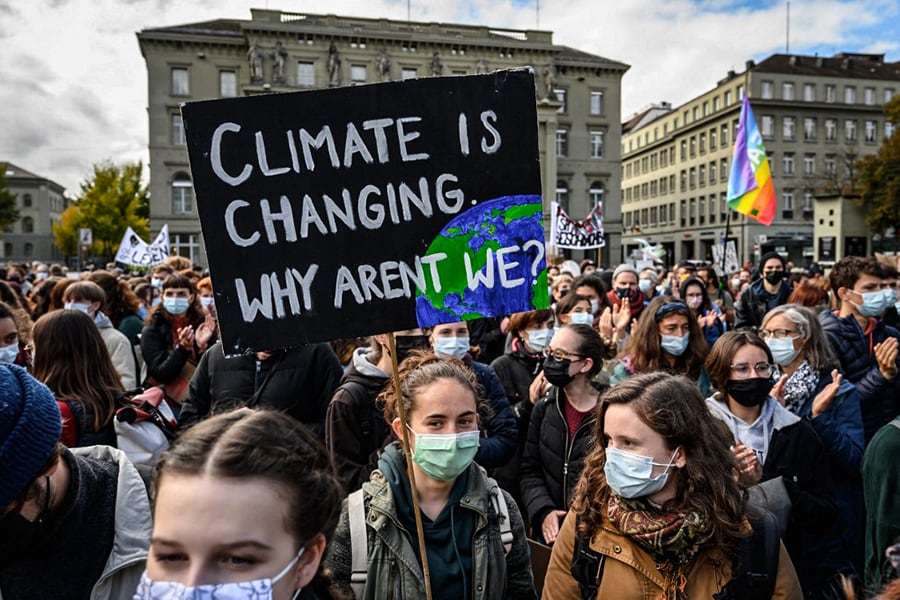
Yes, there has been progress on climate. No, it's not nearly enough
The World Meteorological Organisation warned this week that the amount of heat-trapping greenhouse gases in the atmosphere reached a record high last year and is rising again this year
 A activist holds up a placard during a climate strike demonstration ahead of the World Climate Conference in Glasgow, in front of the Swiss House of Parliament in Swiss capital Bern on October 22, 2021.
A activist holds up a placard during a climate strike demonstration ahead of the World Climate Conference in Glasgow, in front of the Swiss House of Parliament in Swiss capital Bern on October 22, 2021.
Image: Fabrice Coffrini / AFP
The world’s countries have begun to make meaningful progress in the fight against climate change over the past decade, new data shows, thanks to a rapid expansion of clean energy. Yet the planet is still on track for dangerous levels of warming in the years ahead unless those efforts accelerate rapidly.
As leaders from around the globe gather in Glasgow, Scotland, for a pivotal United Nations climate summit next week, the focus will be on how much hotter the Earth will get and how to keep that number as small as possible.
Humans have warmed the planet 1.1 degrees Celsius (2 degrees Fahrenheit) since preindustrial times, largely by burning coal, oil and natural gas for energy and by cutting down forests, which help absorb the planet-warming emissions created by fossil fuel use. Humanity is already paying a high price: This year alone, blistering heat waves killed hundreds of people in the Pacific Northwest, floods devastated Germany and China, and wildfires raged out of control in Siberia, Turkey and California.
The World Meteorological Organization warned this week that the amount of heat-trapping greenhouse gases in the atmosphere reached a record high last year and is rising again this year. Scientists say that every additional fraction of a degree of warming will exacerbate extreme weather and other risks around the globe.
©2019 New York Times News Service







